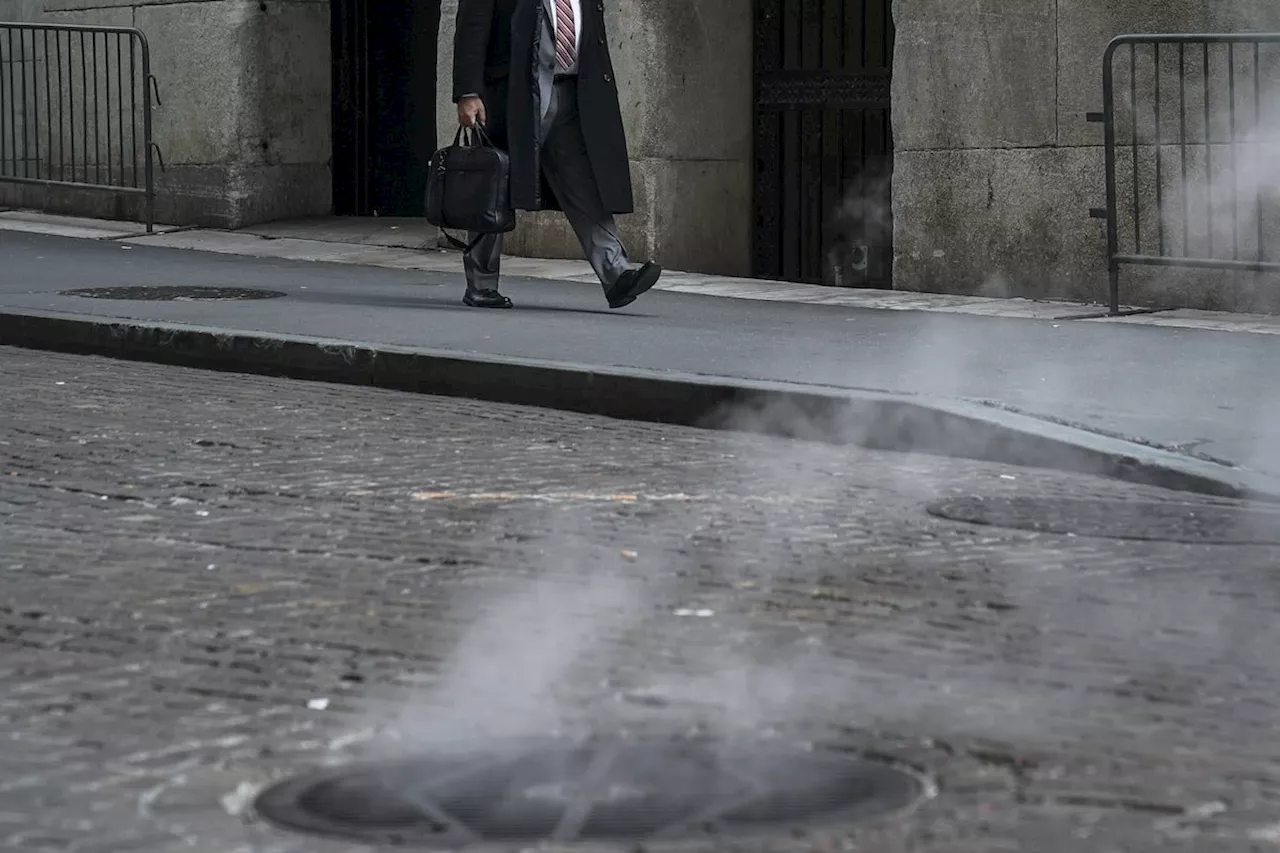Research suggests climate change, not habitat loss, may be the biggest threat to the survival of threatened caribou herds.
Biologists have long thought the herds are menaced by wolves using cutlines and clear cuts to follow deer into old-growth forests that once protected caribou.
They thought restoring that habitat would reduce deer numbers and the wolves that prey on them, giving caribou a break in the process. Researchers tested that notion by comparing deer populations in a region bisected by the Saskatchewan-Alberta boundary. Industrial impacts were nearly four times as extensive on the western side of that region and significantly colder and snowier in the north.Lead author Melanie Dickie of the Alberta Biodiversity Monitoring Institute says the finding means deer are here to stay in the boreal forest.
She says that probably means simply replanting and restoring damage to the boreal forest isn't going to be enough to keep caribou on the landscape and that measures such as culling wolves will be around for a long time.
Canada Latest News, Canada Headlines
Similar News:You can also read news stories similar to this one that we have collected from other news sources.
 Biden Administration Stresses “No Plans Underway” for Research on Blocking Sunlight for Climate “Protection”Response to White House Office of Science and Technology Policy report show that many are concerned about the unintended consequences of geoengineering.
Biden Administration Stresses “No Plans Underway” for Research on Blocking Sunlight for Climate “Protection”Response to White House Office of Science and Technology Policy report show that many are concerned about the unintended consequences of geoengineering.
Read more »
 Globe Climate: Canada’s bird watchers are also observing climate changeFrom unpredictable arrivals to millions of missing warblers and sparrows, birders have a front row seat to the effects of the climate crisis
Globe Climate: Canada’s bird watchers are also observing climate changeFrom unpredictable arrivals to millions of missing warblers and sparrows, birders have a front row seat to the effects of the climate crisis
Read more »
 Climate change damage could cost US$38-trillion per year by 2050, study findsA study from the Potsdam Institute for Climate Impact Research calculates climate change will shave 17% off the global economy’s GDP by the middle of the century
Climate change damage could cost US$38-trillion per year by 2050, study findsA study from the Potsdam Institute for Climate Impact Research calculates climate change will shave 17% off the global economy’s GDP by the middle of the century
Read more »
 Sea to Sky's Garibaldi, Meager remain high volcanic threats, according to recent researchCo-author says Squamish should only worry about eruption the same as they would for other natural hazards in the region.
Sea to Sky's Garibaldi, Meager remain high volcanic threats, according to recent researchCo-author says Squamish should only worry about eruption the same as they would for other natural hazards in the region.
Read more »
 Gender and sex: Looking back on 100 years of 'the worst scientific research'In Fluid: Life Beyond the Binary, Mae Martin and historian Jules Gill-Peterson look back on milestones in the flawed (but still influential) history of gender science.
Gender and sex: Looking back on 100 years of 'the worst scientific research'In Fluid: Life Beyond the Binary, Mae Martin and historian Jules Gill-Peterson look back on milestones in the flawed (but still influential) history of gender science.
Read more »
 Americans and Canadians Lying More on Resumes, New Research ShowsNew research suggests that Americans are lying more on their resumes, and it is likely that Canadians are too. A survey found that 64% of American respondents admitted to lying on their resumes at least once. The most common lies were related to prior compensation, relevant skills, work experiences, academic degrees, job titles, and experience with specific tools and equipment.
Americans and Canadians Lying More on Resumes, New Research ShowsNew research suggests that Americans are lying more on their resumes, and it is likely that Canadians are too. A survey found that 64% of American respondents admitted to lying on their resumes at least once. The most common lies were related to prior compensation, relevant skills, work experiences, academic degrees, job titles, and experience with specific tools and equipment.
Read more »
